Best magnesium supplement: Boost energy and aid restful sleep
We’ve tested the best magnesium supplement to help improve sleep, relieve anxiety and ease muscle cramps

Get the world’s most fascinating discoveries delivered straight to your inbox.
You are now subscribed
Your newsletter sign-up was successful
Want to add more newsletters?

Delivered Daily
Daily Newsletter
Sign up for the latest discoveries, groundbreaking research and fascinating breakthroughs that impact you and the wider world direct to your inbox.

Once a week
Life's Little Mysteries
Feed your curiosity with an exclusive mystery every week, solved with science and delivered direct to your inbox before it's seen anywhere else.

Once a week
How It Works
Sign up to our free science & technology newsletter for your weekly fix of fascinating articles, quick quizzes, amazing images, and more

Delivered daily
Space.com Newsletter
Breaking space news, the latest updates on rocket launches, skywatching events and more!

Once a month
Watch This Space
Sign up to our monthly entertainment newsletter to keep up with all our coverage of the latest sci-fi and space movies, tv shows, games and books.

Once a week
Night Sky This Week
Discover this week's must-see night sky events, moon phases, and stunning astrophotos. Sign up for our skywatching newsletter and explore the universe with us!
Join the club
Get full access to premium articles, exclusive features and a growing list of member rewards.
Whether it’s better sleep, stress relief or improved energy, the best magnesium supplement can offer a number of benefits. Magnesium is an important mineral that our bodies need to carry out the functioning of over 300 enzymes, crucial for supporting muscle and nerve function, as well as energy production.
Magnesium rich foods include legumes, brown rice, green leafy vegetables, wholegrains and even dark chocolate. But according to figures, almost half (48%) of the U.S. population consumes less than the required amount of magnesium.
According to the National Institutes of Health, women aged 19-30 years need around 310 mg magnesium per day, with men needing 400 mg. For those aged 31 and over, the RDA is slightly higher; 320 mg for women, and 420 mg for men. If you’re struggling to get enough magnesium from diet alone, the best magnesium supplement may help to top up your levels.
But there are so many more benefits of magnesium. This mineral helps to regulate neurotransmitters that are related to sleep, as well as serotonin (the ‘feel good’ hormone), potentially improving mood. Researchers have also found that taking magnesium for headaches could shorten severity and frequency, while women who took magnesium for period pain experienced a reduction in symptoms, according to a Cochrane review.
But choosing the best magnesium supplement for you can be tricky. Magnesium comes in multiple forms, including citrate, malate, oxide and even sulfate — better known as Epsom salts. The former tends to be one of the most bioavailable forms, which is why our top pick, Pure Encapsulations Magnesium (citrate) is best for most people. If you have a more sensitive stomach, Vital Nutrients Magnesium contains a combination of glycinate and malate, which tends to produce less digestive discomfort.
Below, we’ve put together advice on different types of magnesium, to help you find the most appropriate option for you. Read on for our round-up of the best magnesium supplement you can buy right now, with options to suit a range of budgets and preferences.
Expert
Why you can trust Live Science

Sophie Medlin is a consultant dietitian and the Chair for the British Dietetic Association for London. She has expertise in gastrointestinal and colorectal health and worked in acute hospitals specialising in gastrointestinal diseases before moving into academia. Below, she gives her advice for choosing a magnesium supplement.
Best magnesium supplement
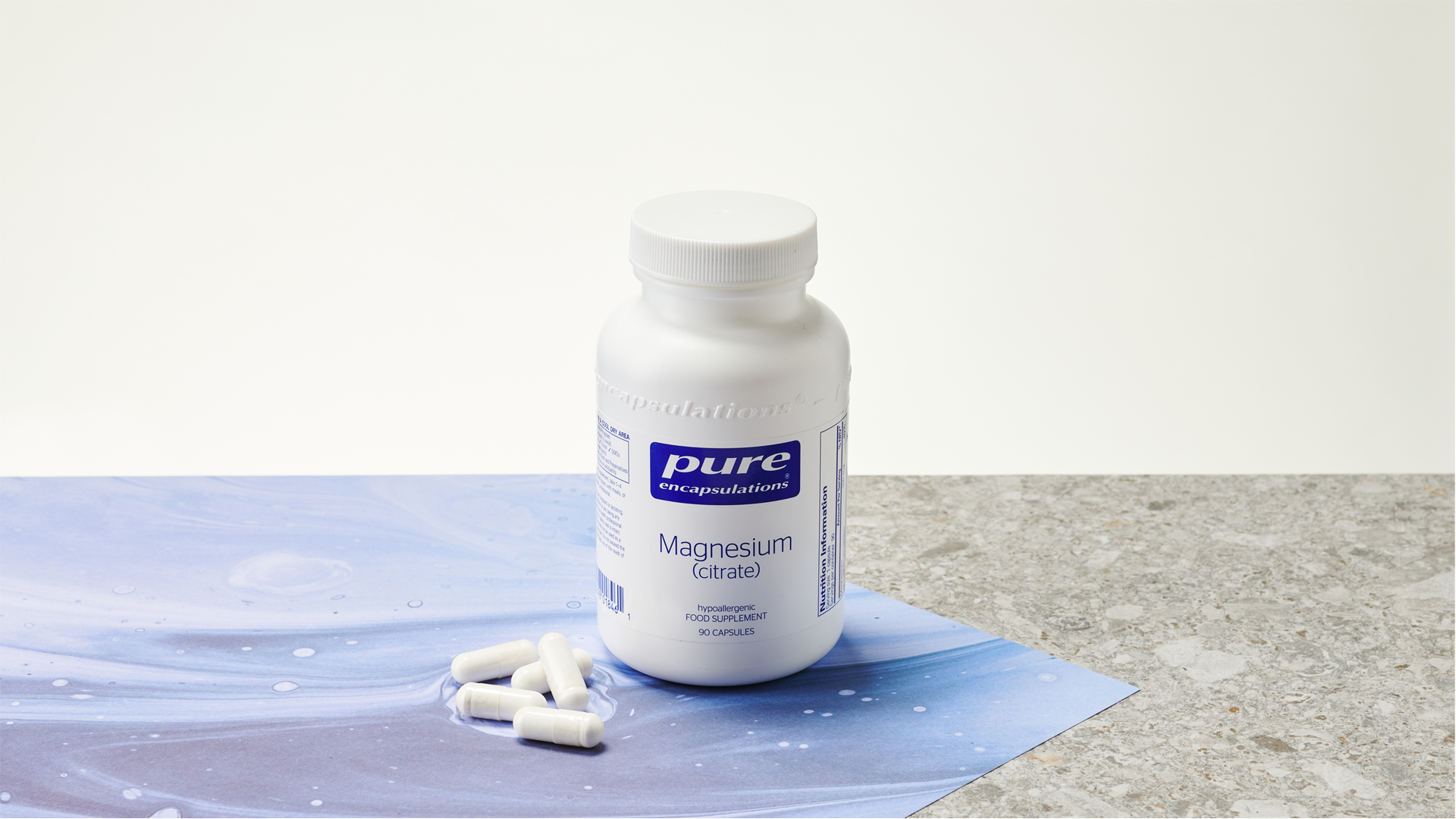
1. Pure Encapsulations Magnesium (citrate)
Our expert review:
Specifications
Reasons to buy
Reasons to avoid
Pure Encapsulations is a trusted supplement company whose products are designed in collaboration with medical professionals and nutritional experts, and strive to be of the highest-quality. Its magnesium (citrate) capsules come in a white plastic container with blue accents.
Pure Encapsulations Magnesium (citrate) scores 4.7 out of five stars on Amazon. Users seem to appreciate that the product has no added fillers, and is simply magnesium (citrate) in a vegan capsule. One comments: “Easy to swallow with no flavor, absorbs very well and aids with other medication absorption”.
Each capsule provides 150 mg of magnesium citrate (36% of your daily value), which is a highly bioavailable form of this essential mineral. They’re also gluten-free, non-GMO, hypoallergenic and suitable for vegans. Each capsule measures approximately 0.905 inches and are coated, making them easy to swallow. We found them completely tasteless too.
A 90 capsule unit should last you three months, while the 180 capsule unit will last you six. However, directions for use state 1-4 capsules daily (with food), so depending on how much you need to take, you may need to replenish your supply sooner.
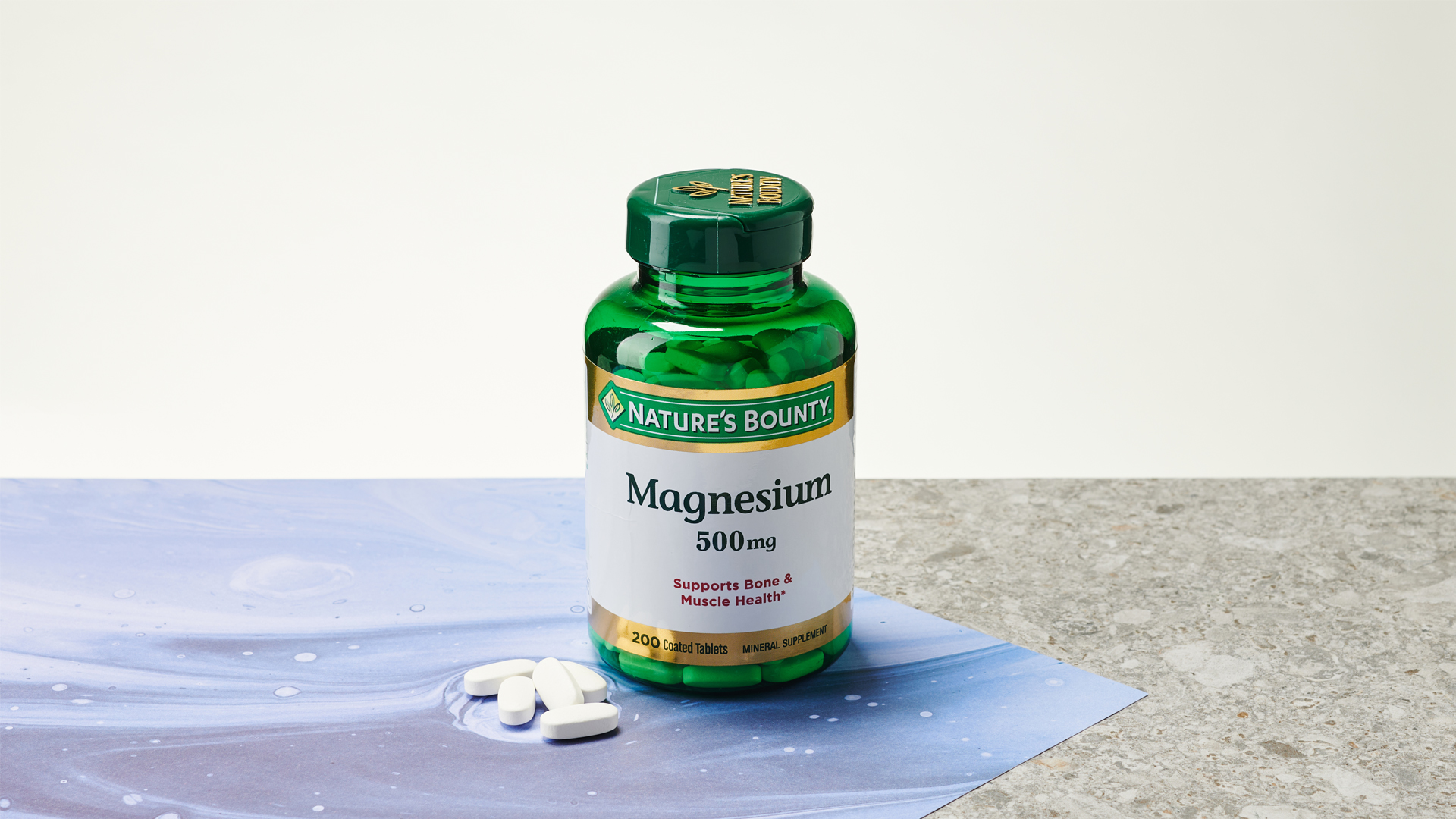
2. Nature's Bounty Magnesium
Our expert review:
Specifications
Reasons to buy
Reasons to avoid
Nature’s Bounty is a trusted company that has been producing supplements for decades. It only uses ingredients from suppliers that meet its Quality Assurance Standards, as well as GMP supplement quality standards. Its magnesium (oxide) tablets come in a green plastic bottle with gold and white accents.
On Amazon, the product scores 4.7 out of five stars, based on over 59,000 ratings. Most users note that the tablets are completely tasteless, although a handful find them slightly difficult to swallow, despite the fact that they are coated. The majority of users also report noticeable differences in sleep quality and leg cramps since using them.
Just one tablet contains 500 mg magnesium (as magnesium oxide) which is 119% of your daily value. One unit also contains 100 tablets, lasting you 100 days, so this is a really affordable option. However, magnesium oxide is typically less bioavailable than other forms of magnesium, including citrate and malate, so the mineral may be less well absorbed by the body.
However, for a company that produces affordable products, Nature’s Bounty is firm on quality. It even states that “[its] facilities have been successfully audited by the United States Pharmacopeia and STR (Specialized Technology Resources), a leading independent dietary supplement quality evaluation firm.” The magnesium tablets are non-GMO, soy-free and gluten-free, and contain no artificial flavor or sweetener.
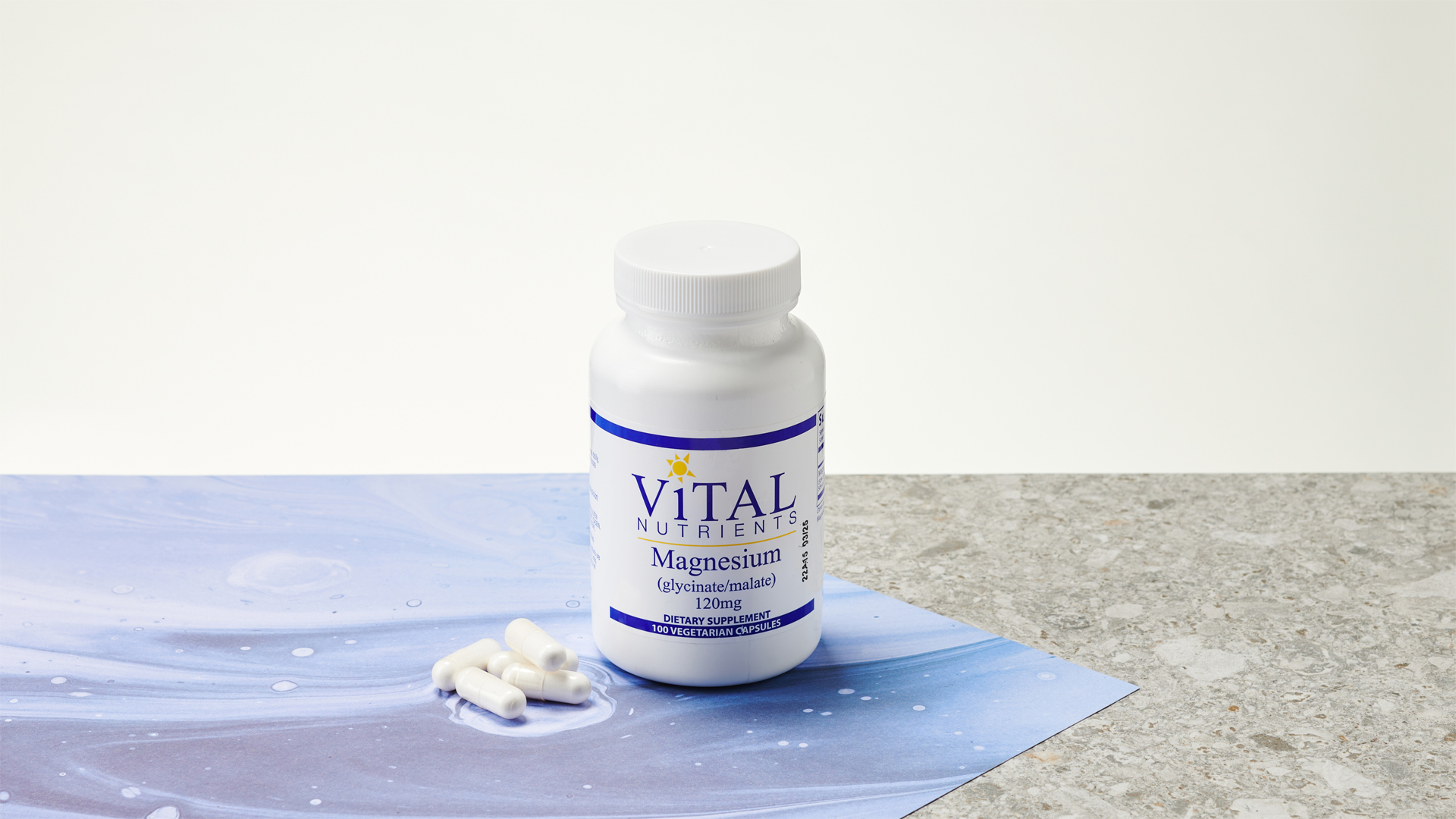
3. Vital Nutrients Magnesium
Our expert review:
Specifications
Reasons to buy
Reasons to avoid
Vital Nutrients was founded over 30 years ago by a group of physicians who believed they could “improve the health of more people by creating a new line of nutritional supplements with clean science and holistic solutions”. Each ingredient and product is tested by independent labs that follow scientifically valid methods and ethical lab practices.
User reviews for Vital Nutrients’ magnesium glycinate/malate are very positive, with the product scoring 4.7 stars out of five on iherb. One user commented: “Good form of magnesium. Quality ingredients. A little expensive”. Another wrote: “I have supplemented with several brands of magnesium, but this one is the best. It helps me improve sleep and joint and muscle pain.”
For those with sensitive stomachs, Vital Nutrients’ magnesium glycinate/malate supplement is a gentler form of magnesium compared to citrate or oxide. In this formula, magnesium is bound to glycine, a non-essential amino acid that functions as a calming neurotransmitter, and malic acid, a natural fruit acid present in most cells in the body which plays a key role in ATP synthesis and energy production.
Two capsules provide 240 mg magnesium (50% as glycinate and 50% as dimagnesium malate) which is 57% of your daily value. They are not exactly small, measuring about 2 cm in length, but they are not difficult to swallow because they’re coated. They’re also suitable for vegans, and free from gluten, dairy, peanut, tree nut, soy and eggs. They don't contain any artificial flavors, colors or sweeteners either, and are non-GMO.
One unit contains 100 capsules, which should last you around 50 days. At $22.50 per unit, this is a good mid-range product.
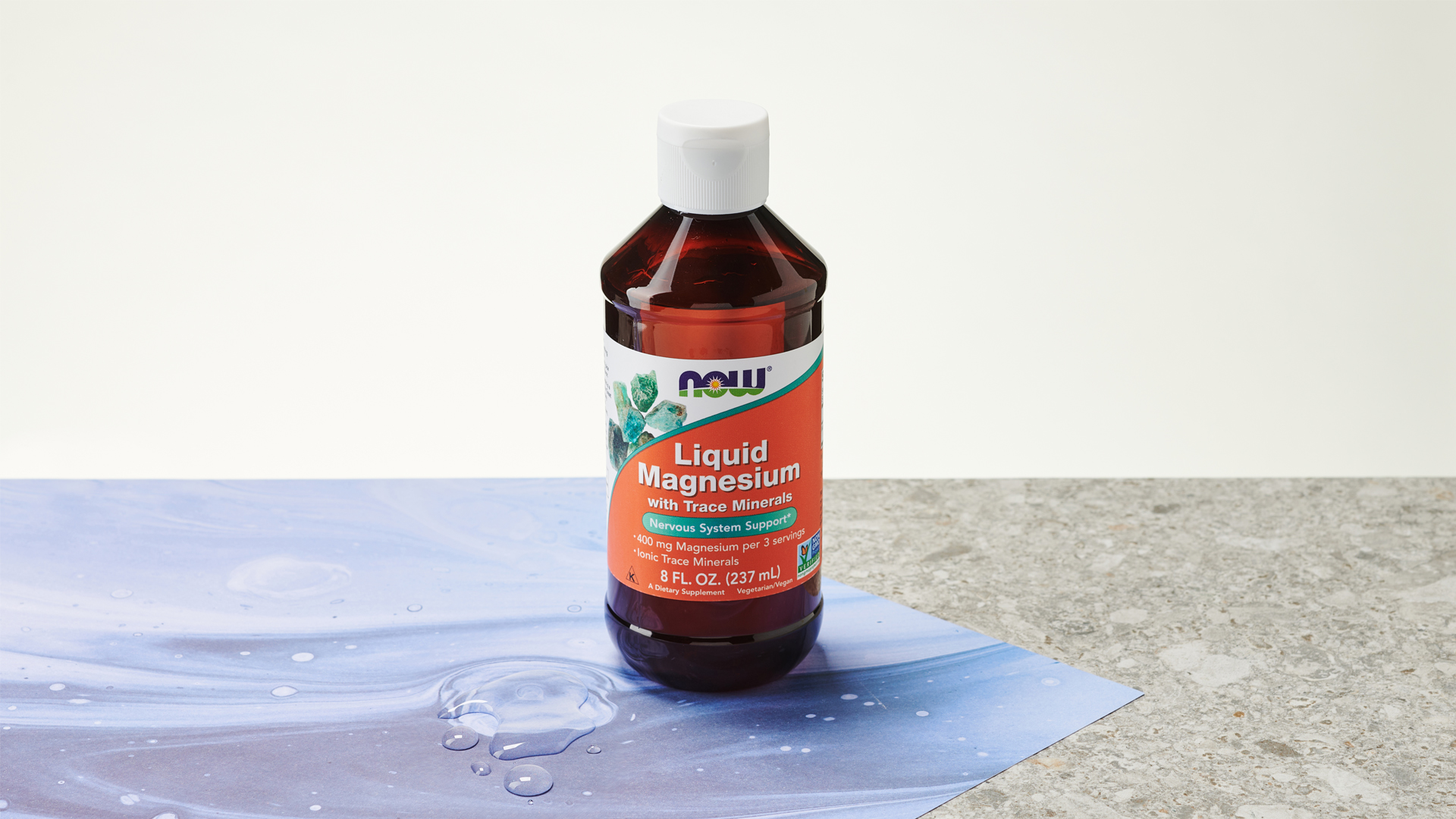
4. NOW Liquid Magnesium
Our expert review:
Specifications
Reasons to buy
Reasons to avoid
Now Foods is a family-owned brand committed to providing “superior quality at value prices” since 1968. All of its products are certified USDA organic, non-GMO project verified and certified gluten-free.
On iherb, the product scores 4.5 stars out of five. One user notes: “Needs to be taken with drink or food to hide the strong salty flavor. Really good for calming the mind and body and for a good sleep.” Other users seem to agree, with another stating: “Very good value for money. It is of good quality and a good brand that is trustworthy. This is rather salty but it goes well with a glass of juice or even just water.”
For those who dislike swallowing tablets, Now’s liquid magnesium contains 133 mg magnesium (from Trace Mineral Concentrate) per serving, which is 32% of your daily value. While one unit is $23.99, it provides 178 servings, so this is a really good value product. Trace Minerals is a natural mineral concentrate sourced from the Great Salt Lake and produced using a solar evaporation process. This removes 99% of naturally occurring sodium, while preserving 72 naturally occurring Trace Minerals.
Because the product is highly concentrated, it does have a very strong taste. Therefore, it is best to take this mixed with juice or food to mask the mineral flavor.
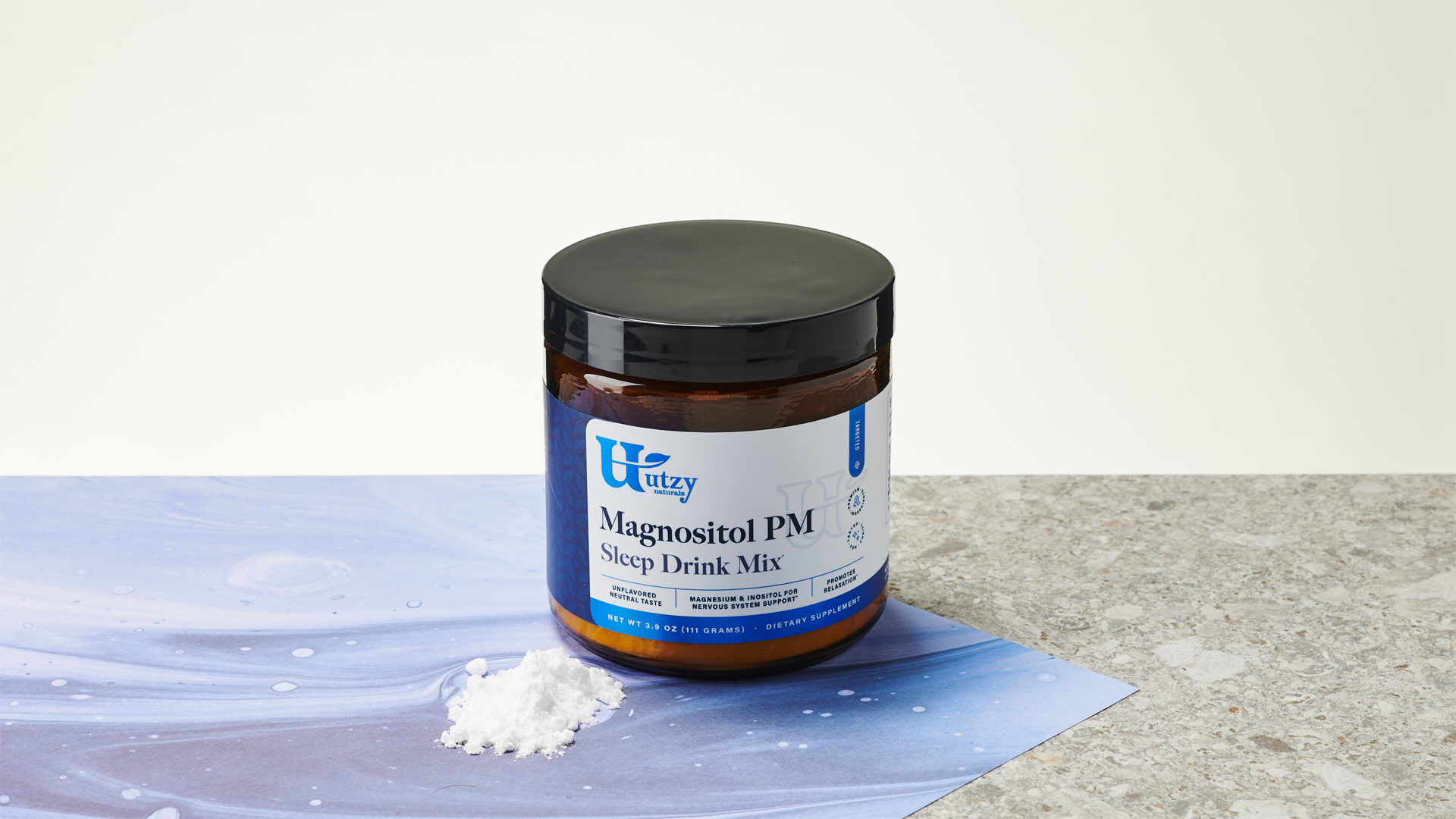
5. Utzy Naturals Magnositol PM
Specifications
Reasons to buy
Reasons to avoid
Utzy Naturals is a relatively new supplement brand that strives to explore and harness ‘the full potential of natural ingredients’. Its Magnositol PM sleep drink mix is a combination of magnesium and inositol, designed to support relaxation and brain health.
Each serving of Magnositol PM (3.7g) contains 200 mg of magnesium as bisglycinate chelate, which is highly bioavailable and provides 48% of your DV. The supplement also contains 1g inositol. This ingredient is often referred to as vitamin B8, although it’s not actually a vitamin at all, but a type of sugar that provides structure to your cells, and helps to balance chemicals in your brain associated with mood.
In terms of the powder itself, one teaspoon dissolves effortlessly into water. In fact, we hardly needed to stir it at all, which was seriously impressive. The taste promises to be ‘unflavored’ and ‘neutral’. We’d say it had an ever so slightly milky taste about it, which actually wasn’t unpleasant before bedtime. If you wanted to, you could easily stir this into a hot drink too.
All Utzy products are free from gluten, corn, yeast, artificial colors and flavors. While they’re not certified vegan, Utzy states that “if not all Utzy products are vegetarian/vegan since [they] use vegan capsules and plant-based ingredients”. The product also comes in a glass jar, which means it can be recycled.
One unit of Magnositol PM lasts around a month, so at $32.95 per unit, we’d put this product in the medium to premium range. Having said this, Utzy does offer a 90-day empty bottle guarantee, so if you’re not satisfied with results after 90-days, you can simply return the empty bottle and receive a full refund.
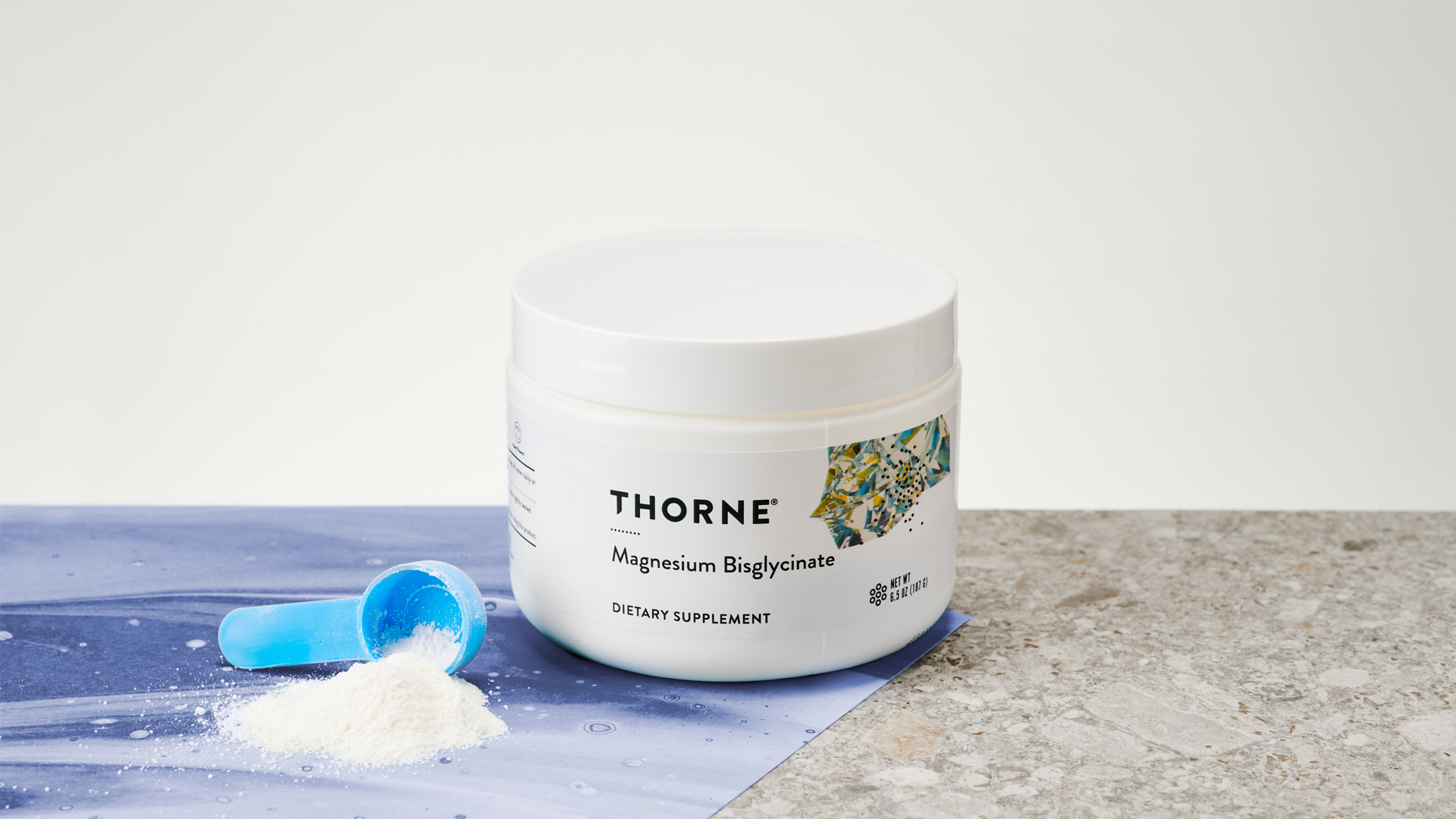
6. Thorne Magnesium Bisglycinate
Our expert review:
Specifications
Reasons to buy
Reasons to avoid
If you don’t enjoy swallowing tablets, Thorne’s magnesium bisglycinate supplement comes in powdered form. The company suggests mixing one scoop with 8 oz of water daily, or as recommended by your healthcare practitioner. You can also mix it with juice or with another powdered supplement.
The supplement scores an impressive 4.5 stars out of five on Amazon, based on 789 global ratings. Users love the new packaging and find it easy to scoop the powder up. A few reviewers note that the flavor is too sweet for them, while others think it is pleasant.
One container should last 60 servings (approximately two months if you don’t exceed the recommended dose). One scoop also contains 200 mg magnesium (as bisglycinate) which is 48% of your daily value. According to Thorne, bisglycinate has “superior absorption because of increased solubility” and a “decreased laxative effect compared to other magnesium formulations”.
Glycine is also a neurotransmitter that promotes relaxation and stress reduction in the body. Thorne suggests that its product is therefore a good choice for pre-bedtime supplementation to support restful sleep.
Note that this product is sweetened with monk fruit concentrate. While some users find this a welcome addition to hot beverages, others would prefer an unsweetened version. Recently Thorne also changed the packaging to a shorter tub, making it easier to scoop the powder out compared with the previous packaging.
Thorne Magnesium Bisglycinate is NSF certified for sport, gluten-free, dairy-free and soy free.
Which magnesium is best?
One of the most important things to consider when choosing the best magnesium supplement is the type of magnesium used in the product. There are several different forms of magnesium, and each one varies in its medical use, bioavailability (how easy it is for the body to absorb) and potential side effects.
"Some forms of magnesium such as magnesium oxide and magnesium citrate are commonly used as a laxative to treat constipation," says registered dietitian Sophie Medlin. "Understandably, they may cause unwanted side effects such as diarrhoea if the intended use isn't constipation relief. magnesium L-threonate and magnesium glycinate have been linked to improved brain health and are known for being easily absorbed. More research is needed, but they've also been linked to anxiety relief and improved sleep quality."
Here are some common types of magnesium:
Magnesium citrate: This is highly bioavailable and one of the most popular forms.
Magnesium glycinate: Also highly bioavailable, research indicates that this form is good for people with sensitive stomachs, as it tends not to cause tummy upset.
Magnesium sulfate: You might know this better as Epsom salts, which are often added to baths or foot soaks to soothe aching muscles.
Magnesium malate: This form is very good for sensitive tummies. One study found that people supplementing with a combination of magnesium malate and several vitamins had very few gastrointestinal issues.
Magnesium chloride: This is often found in skin care products or topical supplements. However, research is currently unclear as to how the bioavailability of topically applied magnesium compares to oral therapy.
Magnesium oxide: This type is generally less bioavailable, so isn’t used to reverse a deficiency. It is more commonly used to treat digestive issues and heartburn.
The best thing to do is choose a form that matches the reason you’re taking the supplement. Magnesium citrate, glycinate and malate all absorb well, but glycinate and malate will be better if you tend to find supplements upset your stomach.
"When I am recommending magnesium supplements, I usually recommend a magnesium complex which covers multiple forms of magnesium," says Medlin.
All of the magnesium supplements in this guide have been approved by at least one of the following bodies, so what you’re promised is what you’re getting:

How much magnesium should I take?
It’s advised that you don’t exceed more than 400 mg of magnesium per day, as you may experience symptoms such as diarrhea, nausea and abdominal cramps. Supplementing with 200 mg should generally be sufficient and safe on top of a balanced diet.
If you are taking magnesium to treat a diagnosed deficiency, doses of 250-600 mg are often recommended. However, if you’re not treating a deficiency, limit your intake to no more than 350 mg from supplements (the tolerable upper intake level).
Medlin adds: "Always check with your pharmacist or doctor if you are prescribed antibiotics and routinely take magnesium supplements as they can interact negatively. High doses of magnesium can cause nausea, vomiting, abdominal pain and diarrhoea."
It is always best to consult your doctor before introducing a new supplement to your routine, particularly if you have been diagnosed with a deficiency.
Form
You can buy the best magnesium supplements in tablet, capsule, liquid and powder form. Liquid and powder are ideal for those who have trouble swallowing non-chewable tablets. It’s also easier to modify or control your dose in liquid form.
Other ingredients
You can often find magnesium in other supplements, such as the best multivitamin for women. But bear in mind that this will often be in lower amounts. Magnesium is often sold in combination with calcium too, but it is better to take these nutrients individually at higher doses because they can compete for absorption.
One study in the Journal of the American College of Nutrition also found that very high doses of zinc from supplements (142 mg/day) can interfere with magnesium absorption and disrupt the magnesium balance in the body. So consider when you are taking your supplements, if you are taking multiple at once.

How do we test magnesium supplements at Live Science?
All of the supplements in this guide have been tried and tested by the Live Science team. Supplements will affect everyone slightly differently, so we review our products based on what they contain and what you might need to be aware of before taking them. We focus on the following areas in particular:
Ingredients: We note exactly what ingredients are in a magnesium supplement. We then compare this to your recommended daily value so you can decipher if you’ll get enough magnesium from these supplements.
Cost and value for money: Meeting your health goals shouldn’t have to cost the earth. We compare prices across all of our magnesium supplements to see if the more expensive options are worth the money, and the cheaper options meet your needs.
Dosage: In all of our reviews, we note how much of each supplement you are required to take and how often.
Suitability: We recognise that different people have different needs. We make clear if a magnesium supplement is suitable for a particular diet (such as vegan or gluten-free). We also note if it is GMO-friendly or suitable for people with particular allergies.
Easiness to swallow and taste: Because we test every supplement ourselves, we make sure to disclose whether the supplements are easy to swallow. While taste is subjective, we do make note of this too, including any unpleasant aftertastes.
Additional features: When we test magnesium supplements, we note if one thing makes it stand out over the other. This could be the bioavailability of the ingredient or the manufacturing methods.
This article is for informational purposes only and is not meant to offer medical advice.
Get the world’s most fascinating discoveries delivered straight to your inbox.

Alice is the health channel editor at Live Science. She also reviews tech and fitness products for our buying guides, from air purifiers to treadmills. She has worked across multiple knowledge and wellness brands at Future, including Fit&Well, Coach, T3, TechRadar and Tom's Guide. Alice holds a bachelor's degree in journalism from City, University of London, where she spent a year studying nutrition, dietetics and public health at Queensland University of Technology in Brisbane. A self-confessed running fanatic, she's completed six marathons and qualified for the Boston marathon.
 Live Science Plus
Live Science Plus










